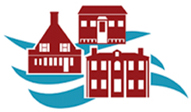Collection context
Summary
- Creator:
- The Dialogue of Schenectady, Inc.
- Abstract:
- The records of the Dialogue of Schenectady, Inc., also known as the Dialogue Coffee House, a non-profit organization aimed at creating dialogue through discussion groups and presentations.
- Extent:
- .5 cubic feet
- Language:
- English
Background
- Scope and Content:
The collection comprises the records of the Dialogue of Schenectady, Inc., also known as the Dialogue Coffee House, a non-profit organization aimed at creating dialogue through discussion groups and presentations. The records include correspondence, meeting minutes, newspaper clippings, publications and ephemera, photographs, financial information, and reports. The collection also includes a memoir written by Terry Hewitt, the organization’s first managing director, regarding his memories of the Dialogue Coffee House. The collection documents the organization during the years 1965-1967 and part of 1968; records of the activities of the organization after March 1968 are not included in this collection.
- Biographical / Historical:
The Dialogue Coffee House was organized by Rev. Grover Criswell of the Union Street Christian Church, Terry Hewitt, a lay Catholic, and Rev. Donald Stake of Union Presbyterian Church. The origins of the organization were inspired by the nascent “coffee house ministry” movement and by the progressive and ecumenical spirit of the Vatican II. An initial organizing meeting for the coffee house was held in January 1965 at the First Methodist Church in Schenectady. By the following month, a statement of purpose had been written, which outlined the purpose of the coffee house as “to provide for the Schenectady area a place dedicated to the fostering of dialogue between persons. By dialogue we mean: the experience of significant conversation where the barriers between persons can be dropped because there is an atmosphere of trust . . . where the personal in our mass society is discovered.” The organization chose “The Dialogue” as a name and “a setting for significant conversation” as its motto. After several months of planning and organizing, The Dialogue held its opening session on September 12, 1965, at the First Methodist Church in Schenectady. Its first topic of discussion was United States foreign policy in Vietnam. The Dialogue continued its series of 54 programs at the First Methodist Church through June 1966.
The Dialogue operated in program years which ran from October through June, with a break from July through September. After ending the 1965-1966 season at the First Methodist Church, the Dialogue’s next season began in its own location at the second floor of 121 South Ferry Street in Schenectady. Interest and attendance at the Dialogue grew during the organization’s next year of operation; a 1968 report indicates that attendance at the Dialogue reached its peak around March 1967. Nearly 1,300 were in attendance at the coffeehouse during that month, in comparison to just over 400 in March 1966. At its busiest, the Dialogue Coffee House was open four evenings a week, Thursday through Sunday, with two days featuring speakers or other programming and two days based solely in fostering free-form discussion.
The Dialogue Coffee House hosted a number of presentations and open dialogues about a number of topics, including social, economic, and political issues, local politics and government, civil rights, the war in Vietnam, visual and performing arts, health, religion and spirituality, psychology, labor issues, education, morality, and the nature of dialogue. While controversial topics were often featured at the Dialogue Coffee House, the atmosphere tended toward conversation rather than debate. Paul Dubner, in a 1967 Schenectady Gazette article, writes: “political protagonists seem to lay down their arms when they go to the house. Persons from all major political parties gather at this Schenectady night spot to talk and listen. Those of opposite political camps – liberals and conservatives – find they can hold dialogue with each other with feelings of tolerance and understanding.” In addition to open discussions and presentations, the coffee house also provided a space for underground films, musical performances, and plays as an impetus for dialogue. A complete list of programs held from 1965 through March 1968, including presenters, can be found in the memoir written by Terry Hewitt.
In addition to activities at the Dialogue Coffee House, the Dialogue also published a journal, The Dialogue Journal, in spring 1967. Three issues were published from 1967-1968, featuring editorials and articles written by local people about a number of topics. The organization also helped to subsidize a teenage coffee house group, The Id, during its 1967-1968 year.
The Dialogue was organized by a board of directors. Its first board chairman was Grover Criswell (1965-1966), succeeded by Don Fentiman (1966-1968) and then John Waggy (1968). Terry Hewitt acted as the first managing director of the Dialogue Coffee House, succeeded by Ronald Sontag in 1968. Chairs for the coordination of programs, membership, and finance also served the organization. The Dialogue Coffee House continued to operate at least through September 1969 and possibly continued for a longer time.
- Acquisition information:
- Received from Terry Hewitt, 4 April 2012
- Rules or conventions:
- Describing Archives: a Content Standard
Indexed Terms
Access
- RESTRICTIONS:
-
Access to this collection is unrestricted.
- TERMS OF ACCESS:
-
No restrictions.
- LOCATION OF THIS COLLECTION:
- CONTACT:
-
518 374 0263

